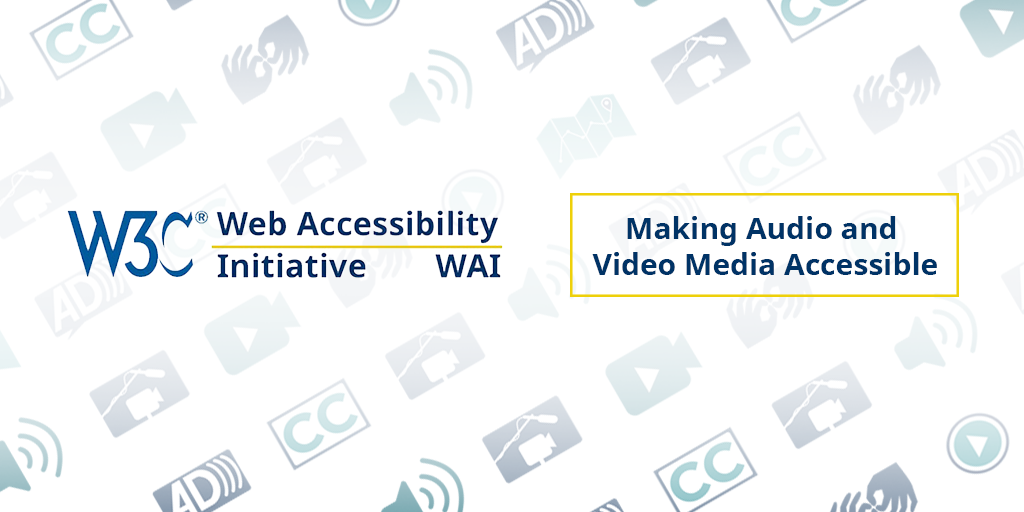See What We're Working On this month – Accessibility Activities and Publications
For Wide Review: Synchronization Accessibility User Requirements (SAUR)
(2022-04-13)
Synchronization Accessibility User Requirements (SAUR) is ready for wide review before finalizing and publishing it as a W3C Note. SAUR describes accessibility user needs and requirements for audio and visual media synchronization. It discusses synchronization of accessibility-related components of multimedia, such as captions, sign language interpretation, and description. Additional information is in the 13 April 2022 review e-mail. Please submit any comments by 13 May 2022.
Invitation: WAI-CooP Meeting, Online, 19 April 2022
(2022-04-04)
You are invited to the WAI-CooP Open Meeting, Online on 19 April 2022. We encourage participation from people interested in: digital accessibility implementation in Europe and internationally; guidance on available web accessibility training, tools, and resources; and exchanges on the European Union (EU) Web Accessibility Directive (WAD). Agenda, logistics, and registration information is in the meeting page. This meeting is free, and registration is required.
Cognitive Accessibility Design Patterns - New User Interface
(2022-03-31)
Cognitive accessibility objectives and design patterns are now available as a set of web pages from Cognitive Accessibility Guidance list. The objectives and design patterns are “supplemental guidance” to WCAG 2 as explained in About Supplemental Guidance. They are part of W3C work on accessibility for people with cognitive and learning disabilities introduced in Cognitive Accessibility at W3C.
New Page: What’s up at W3C WAI
(2022-03-17)
What We're Working On — Accessibility Activities and Publications is a new web page where you can see what projects we’re working on at the W3C Web Accessibility Initiative (WAI), what publications are planned for the next couple months, and opportunities for you to contribute.
Updated Resource: Designer Modules in Curricula on Web Accessibility
(2022-02-10)
New designer modules are now published in the Curricula on Web Accessibility. This curricula provides a framework for creating courses on digital accessibility, for including accessibility in other courses, and for reviewing and comparing existing and proposed courses. The February 2022 publication adds new designer modules. These modules focus on teaching accessibility to visual, information, interaction, and UX designers.
For Review: Inaccessibility of CAPTCHA - draft update
(2021-12-16)
An updated draft of Inaccessibility of CAPTCHA: Alternatives to Visual Turing Tests on the Web is available for review and comment. It explores cryptographic authentication to verify humans versus bots. This uses W3C technologies that remove the need for interactive CAPTCHAs (Completely Automated Public Turing Test to distinguish between Computers and Humans).
Digital Accessibility Updates on International Day of Persons with Disabilities (IDPD)
(2021-12-02)
Digital Accessibility Updates on International Day of Persons with Disabilities (IDPD) blog post gives you updates on:
- documenting user needs in MAUR, SAUR, XAUR, RAUR, NAUR
- translating accessibility resources
- updating digital accessibility language on speech recognition, voice recognition, description of visual information in videos, and more.
See All News Subscribe to WAI News

